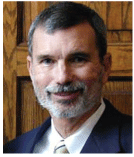This is the first in a series of occasional interviews with O.D.s in the Forefrontoptometrists who are advancing the profession in unique ways.
Rod W. Nowakowski, O.D., Ph.D.
Rod W. Nowakowski, O.D., Ph.D., is chief of staff at the

Q. What is eyeGENE?
A. The purpose of the eyeGENE program is to create a repository of DNA from people with hereditary eye disease. This will be used to create a research database available to investigators.
Were reaching out to the ophthalmic community to submit samples andthis is very important strong phenotypic data. The correlation of phenotypes and genotypes may allow for recognition of associated traits that will help in diagnosis, suggest certain therapies as opposed to others, and allow for more accurate discussions of prognosis with affected persons.
The molecular genetic diagnosis is returned to the submitting provider to be used for genetic counseling and patient management. There is no charge for the molecular genetic diagnosis at this time.
Q. Why is the eyeGENE program important?
A. The eyeGENE repository and database will be a resource like no other. It offers accelerated potential for new discoveries by having a single resource for multiple samples. Goals of the program include uncovering the genetic causes of eye diseases, delivering genetic information to people with inherited eye diseases, and encouraging them to participate in clinical trials that may lead to new treatments, including gene therapy.
Can this work? Absolutely. Gene therapy has already proven successful in a dog model for Leber congenital amaurosis. Human trials have begun in
Q. How can optometry get more involved?
A. This program is gaining high visibility in the ophthalmic community. The larger the repository, the greater the potential for important outcomesand I want to see optometry actively participating and submitting samples. Any provider can participate, but you must register.
To do so, go to https://nationaleyegene.nei.nih.gov, or contact the eyeGENE coordinator at (301) 435-3032 or eyeGENEinfo@nei.nih.gov. For general information, go to www.nei.nih.gov/resources/eyegene.asp.

